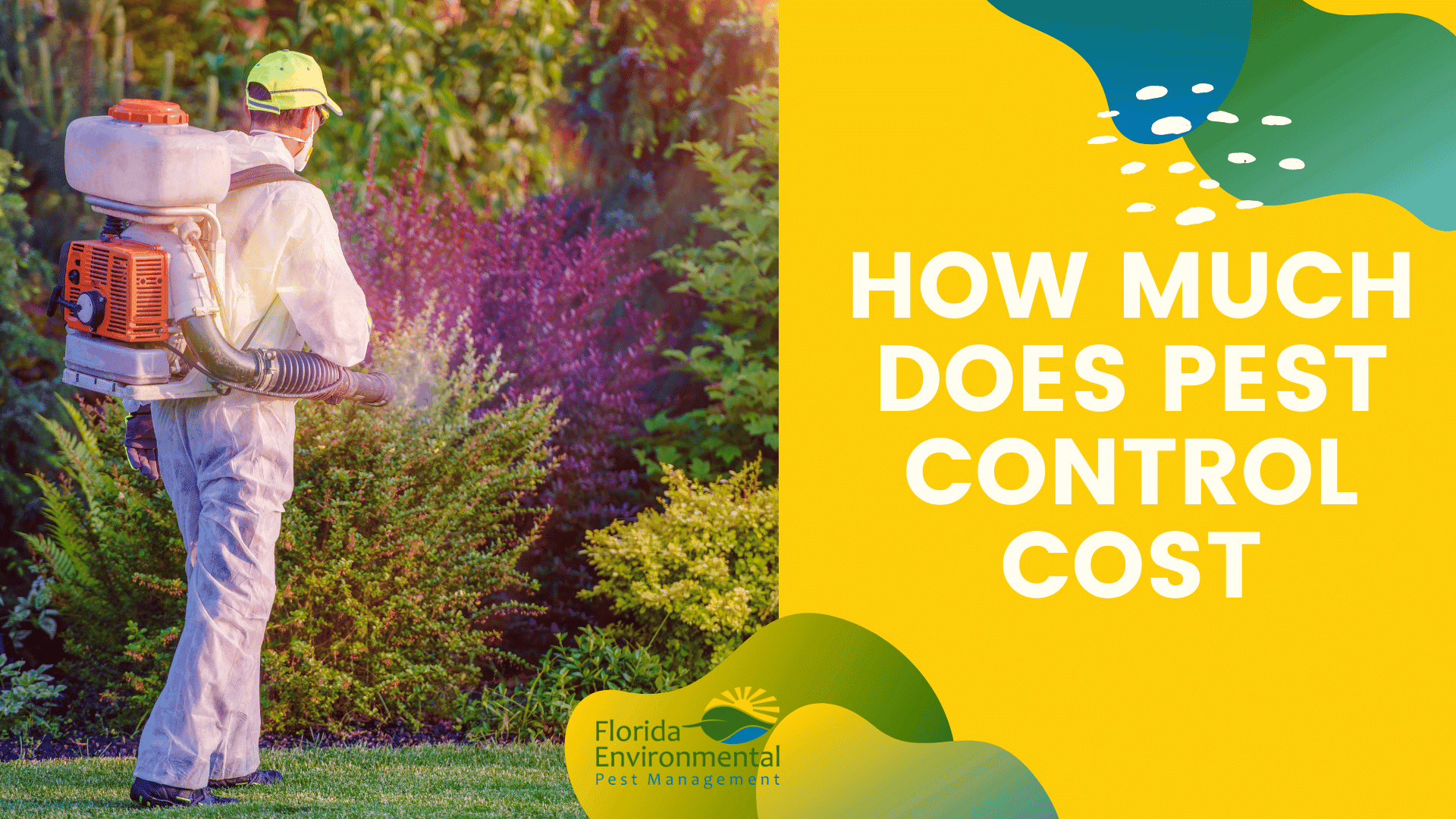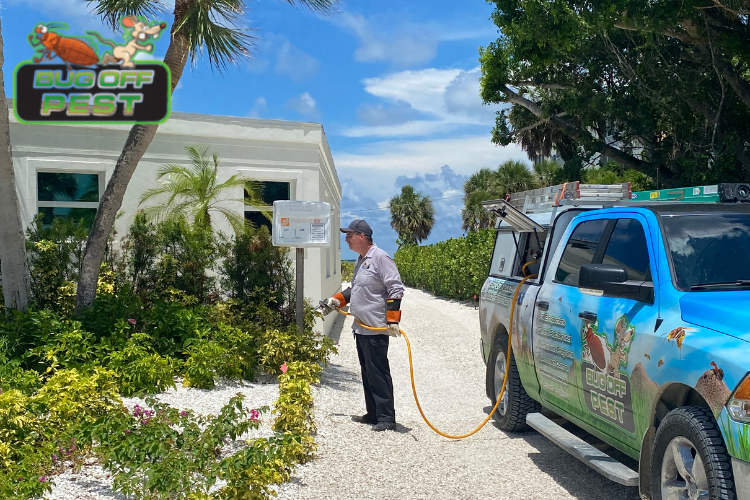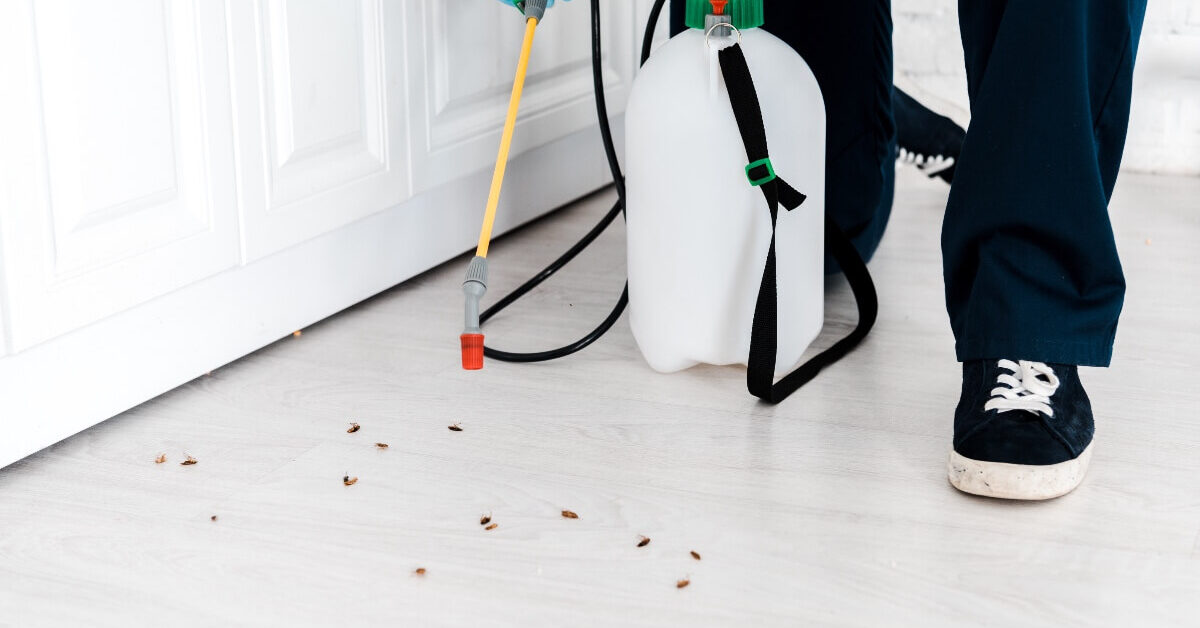How an Exterminator in Port Charlotte Can Protect Your House from Infestations
Uncover the Relevance of Bug Control in Maintaining a Healthy And Balanced Atmosphere and Treatment Strategies

The Role of Parasites in Environments
Pests, often checked out entirely as hassles, play a multifaceted duty in communities that is essential for maintaining environmental equilibrium. They contribute dramatically to various environmental processes, including pollination, vitamins and mineral cycling, and parasite control. As an example, lots of insect varieties, such as bees and butterflies, are essential pollinators for a vast array of plants, which consequently supports biodiversity and food manufacturing.
Additionally, parasites function as victim for many predators, creating an essential web link in food internet. This interdependence makes certain the survival of different species and assists regulate populations within ecosystems (Termite treatment Port Charlotte). Furthermore, decomposer pests, such as specific beetles and fungi, contribute in damaging down raw material, hence improving dirt and facilitating nutrient recycling.
Conversely, while pests can be advantageous, their overpopulation or invasion right into non-native settings might interrupt these environmental functions. This complexity emphasizes the value of comprehending insect dynamics, as effective parasite monitoring methods need to think about both their ecological duties and possible effects on human activities. Stabilizing pest existence while reducing harm is essential for maintaining the stability of communities and ensuring farming efficiency.
Health Risks Connected With Bugs
The presence of parasites in numerous settings extends past their ecological duties, as they likewise pose considerable health threats to humans and pets. Many bugs, including rats, pests, and parasites, are service providers of diseases that can have severe health ramifications. Rodents are understood to send hantavirus and leptospirosis, both of which can lead to severe breathing and kidney issues, respectively.
Pests such as mosquitoes and ticks are infamous for spreading out vector-borne diseases like jungle fever, dengue fever, and Lyme disease. These ailments can cause high morbidity and death rates, particularly in prone populations. In addition, insects like cockroaches and vermins can exacerbate allergies and asthma, adding to breathing issues in individuals, especially those with pre-existing problems.
Additionally, the existence of bugs can bring about psychological anxiety and pain, affecting general wellness. Contamination of food and surface areas by bug droppings and continues to be can bring about foodborne ailments, highlighting the relevance of keeping hygienic problems. Recognizing the health and wellness risks associated with parasites is critical in identifying the requirement of effective pest monitoring methods to protect human and animal wellness.

Advantages of Reliable Pest Control
Efficient pest control is essential for keeping a secure and healthy and balanced environment, as it consistently alleviates the various risks linked with insect invasions. One of the key advantages of reliable bug administration is the decrease of health and wellness hazards.
In addition, efficient pest control safeguards residential or commercial property and frameworks from damage. Several bugs, like termites and carpenter ants, can trigger comprehensive architectural damage that might call for expensive repairs. By proactively handling these companies, problems and homeowners can safeguard their financial investments.
Another significant advantage is the renovation of total quality of life. A pest-free atmosphere adds to psychological health and reduces tension related to problems. In addition, effective insect control promotes a much safer atmosphere for youngsters and pet dogs, ensuring that homes remain havens totally free from dangerous chemicals and disease-causing microorganisms.
Typical Insect Control Techniques

In the realm of bug management, numerous methods are employed to deal with infestations effectively. These strategies can be broadly classified into 3 major methods: social, mechanical, and chemical controls.
Cultural control entails customizing practices to minimize insect establishment, survival, and recreation. This might include find out this here plant rotation, correct cleanliness, and habitat control, which collectively produce an environment less helpful to pest proliferation.
Mechanical control uses physical methods to eliminate bugs (Termite treatment Port Charlotte). Methods such as barriers, vacuums, and traps are frequently utilized to straight get rid of pests from an office pest control area. This method is especially efficient for handling rats and bugs without using unsafe chemicals
Chemical control entails the application of chemicals to manage pests. These materials can be categorized right into pesticides, herbicides, and fungicides, each targeting details sorts of bugs. It is important to utilize these chemicals sensibly, adhering to safety and security standards and policies to lessen potential harm to non-target varieties and the atmosphere.
Each insect control technique has its benefits and constraints, and commonly, an integrated method incorporating numerous techniques generates the most effective cause maintaining a pest-free setting.
Sustainable Parasite Administration Practices
Sustainable parasite administration practices incorporate a series of techniques made to lessen environmental influence while efficiently regulating insect populaces. These methods prioritize making use of environmentally pleasant methods over chemical pesticides, consequently decreasing the threat of harm to non-target varieties, including valuable bugs, wild animals, and humans.
Integrated Bug Administration (IPM) is a cornerstone of sustainable techniques, combining organic, cultural, mechanical, and emergency pest control chemical techniques to take care of insects. Biological control includes presenting all-natural predators or parasites to reduce parasite populations. Cultural techniques, such as plant rotation and polyculture, interrupt pest life process and enhance community strength.
Mechanical methods, such as traps or obstacles, can efficiently stop pest access without chemical treatment. In addition, maintaining healthy ecosystems through appropriate dirt monitoring, plant health, and biodiversity can naturally alleviate parasite concerns.
Education and awareness are important elements, encouraging individuals and neighborhoods to identify insect dangers early and apply safety nets. Termite treatment Port Charlotte. By cultivating a holistic method that balances pest control with ecological stability, sustainable insect administration methods not only safeguard crops and structures but likewise contribute to a healthier environment for future generations
Conclusion

Understanding the wellness dangers associated with parasites is vital in acknowledging the need of efficient pest monitoring methods to safeguard animal and human health and wellness.
Effective bug control is important for keeping a healthy and secure environment, as it continually reduces the countless risks linked with pest invasions.Integrated Pest Monitoring (IPM) is a cornerstone of lasting techniques, integrating organic, cultural, mechanical, and chemical strategies to take care of insects. By recognizing the role of insects, identifying associated health and wellness threats, and employing varied therapy techniques, a sustainable strategy to pest management can be accomplished. Integrated Parasite Management (IPM) highlights an all natural methodology that reduces damage to beneficial organisms while successfully regulating parasite populations.